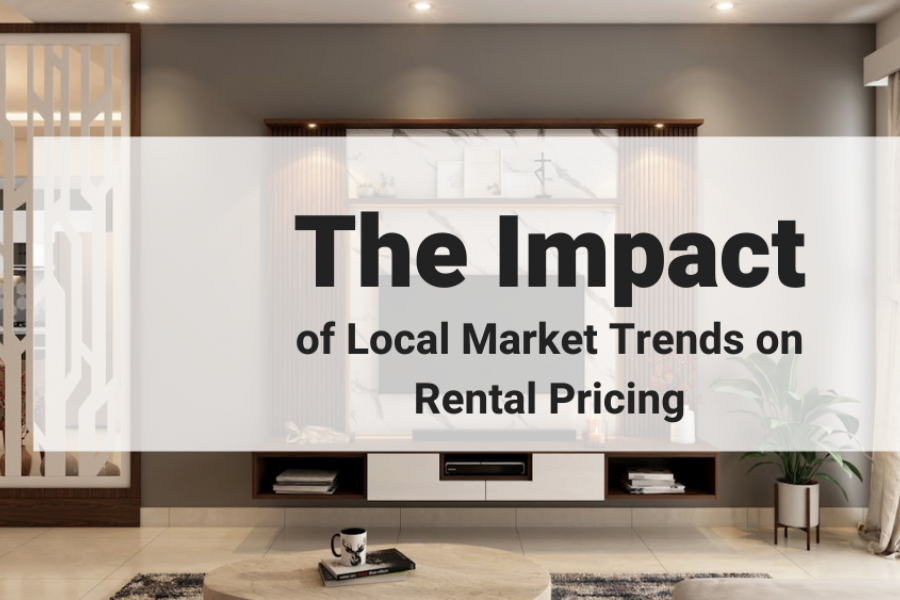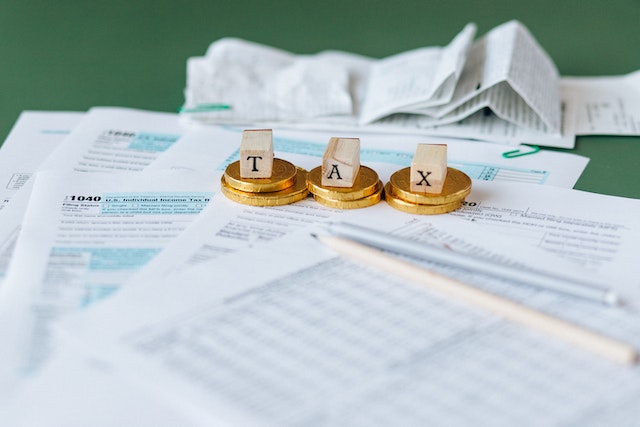
Key Takeaways
- Market Forces Drive Rent Levels – Economic growth, interest rates, and housing supply directly influence how much landlords can charge for rent.
- Location Plays a Major Role – Proximity to jobs, schools, and amenities boosts demand, leading to higher rental rates in desirable neighborhoods.
- Stay Adaptive and Strategic – Monitor seasonal and market shifts to adjust pricing, offer flexible leases, or make upgrades that appeal to renters.
- Partner with Experts – Working with State Property Management helps landlords stay informed, maintain competitiveness, and maximize returns in any market.
What determines how much rent a landlord can charge for their rental property? But what determines the rent charged by the owners of these comparable homes? The answer is the local real estate market.
And like every other product or service, demand and supply forces affect property values and rents in any location. This close linkage between market trends, home values, and rental rates affects landlords in the form of available investment opportunities and the ROI from their assets.
This is why, as a landlord, you must place the connection between market trends, property values, and your area’s rental rates.
In this guide, State Property Management will guide you through an investment strategy and overall rental property management approach.
Central Florida’s Property Management Specialists! Call today: (407) 634-2800
7 Critical Factors Influencing Rental Pricing
1. Economic Conditions
A strong economy leads to higher levels of consumer spending with increased demand for housing. This upward pressure on the existing housing stock forces property valuers and rental rates to go up.
This is why, in favorable economic conditions, rents are higher since renters can afford to pay. But during economic downturns, this trend reverses, and landlords must keep rents stagnant or lower the rent to attract renters to their property.
2. Interest Rates
Interest rates have a ripple effect on all levels of the property market. Higher interest rates don’t just affect property investors; ordinary folks looking to buy their own home also feel the impact.

In a high-interest-rate environment, because the cost of money is higher, fewer homes are built. This worsens the housing deficit, resulting in higher rents. High interest rates cause the prices of goods and services, including the rental rate, to go up.
3. Supply and Demand Dynamics
Basic economics tells us that when few buyers are chasing many goods in the market, prices fall. But when a lot of buyers are chasing a few goods in the market, prices go up.
A shortfall in the supply of housing or quality housing always results in higher rents. In a market characterized by low supply and high demand, rental prices will stay high until new homes are built to soak up the excess demand. The reverse of the above is also true.
4. Location and Neighborhood Characteristics
Locations with proximity to job centers, transportation hubs, amenities, top school districts, and local developments have stronger housing demand and higher rents.
Especially if they have low crime rates, a strong local economy, and diverse recreational activities. Fast population growth, due to the number of people moving to the location in search of a better life, creates high demand for housing, resulting in higher rents.
5. Property Type and Features
Distinct property types like single-family homes, duplexes, condos, multi-family residences, and commercial properties have their unique market dynamics.

High demand for a specific property type can push its rental price upwards, while the rental rate for other property types remains the same. The features of a specific property – its size, age, condition, and quality of the amenities – also have a direct impact on its rental rate.
6. Local Legislation and Regulations
The regulatory environment can directly or indirectly influence how much rent landlords can charge for their properties. Rent control edicts and tenant protection laws may set caps on how much property owners can raise the rent within a given period.
Things like zoning laws, building codes, and property taxes may have an indirect impact on real estate development opportunities and the value of existing properties, as well as rental pricing.
7. Seasonal Cycles and Trends
Some locations experience increased demand for housing in specific times of the year.
This results in very strong housing demand during the high season, with rental prices climbing sharply only to plummet in the off-season, with barely any demand at all. Rental pricing in many cities also peaks at the height of the moving season.
Why Landlords Must Understand Market Trends
Competitive Pricing
Understanding how local market trends affect the rental rates of comparable properties helps landlords set a rent amount for their property that ensures its competitiveness.
Reduced Vacancy Rates
Competitive pricing helps to minimize vacancy rates in a property. Even if they don’t make a lot of profits, landlords can generate enough income to cover their costs.
Strategic Upgrades
Understanding the forces that fuel rental demand and pricing in a location provides vital insights into the kinds of upgrades that will make the rental property more attractive.
Shrewd Investment Decisions
By following trends like population shifts, planned infrastructures, and industrial or housing development, you can determine the right time to exit or invest in a specific area.
Conclusion
Understanding how local market trends influence rental pricing is essential for every landlord aiming to stay profitable and competitive. Economic shifts, housing supply, location dynamics, and even seasonal demand all play key roles in determining rent levels.
By staying informed and proactive, landlords can adapt to changing conditions—keeping vacancies low, rents fair, and properties attractive to tenants.
Partnering with State Property Management can also make navigating these market fluctuations easier, helping investors maximize returns while minimizing risk.
Contact us today to learn more!